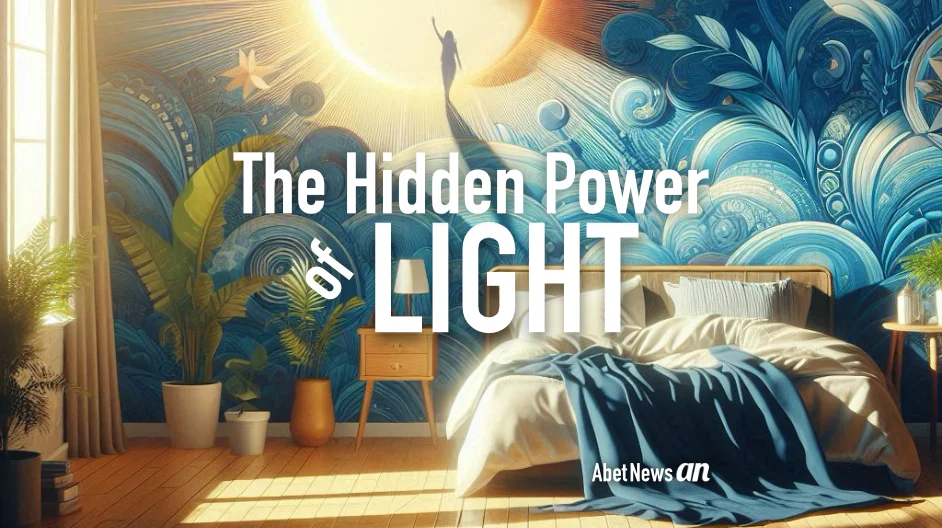The Hidden Power of Light

Balancing Morning Sunlight and Blue Light for Optimal Health
In our fast-paced, technology-driven world, the significance of natural light often goes unnoticed. Yet, the light we are exposed to daily has profound effects on our health and well-being. Dr. Jack Kruse, a neurosurgeon and quantum biologist, shed light on this critical topic during his presentation at Nourish Vermont 2017. He discussed the importance of morning sunlight, the detrimental effects of blue light, and the health benefits of UV red light. By understanding and harnessing the power of light, we can make informed choices to enhance our health and quality of life.
The Importance of Morning Sunlight:
Morning sunlight is a powerful ally in maintaining optimal health. The sun’s rays help regulate our circadian rhythms, the internal biological clocks that govern our sleep-wake cycles. When we expose ourselves to natural light in the morning, we signal our bodies to wake up and become alert, setting the stage for a productive day. This exposure also boosts the production of serotonin, a neurotransmitter that contributes to feelings of well-being and happiness.
Moreover, morning sunlight plays a crucial role in vitamin D synthesis. This essential nutrient supports bone health, immune function, and overall vitality. Spending time outside in the morning sun can help ensure we receive adequate vitamin D, especially for those living in regions with limited sunlight during certain seasons.
Morning Sunlight Activities:
– Exercise Barefoot with Minimal Clothing: Engage in outdoor activities like walking, jogging, or yoga in the morning while barefoot to ground with earth and wearing minimal clothing. This allows maximum skin exposure to the sun, enhancing vitamin D synthesis and promoting overall well-being.
– Avoid Sunglasses While Driving: When driving in the morning, avoid wearing sunglasses to allow natural sunlight to enter your eyes. This helps regulate your circadian rhythm and boosts alertness and mood.
In our modern lifestyle, dominated by indoor activities and artificial lighting, it is essential to prioritize time spent outdoors in the morning. By doing so, we can harness the benefits of natural light to improve our sleep, mood, and overall well-being.
The Negative Impact of Blue Light:
In our modern, screen-dominated world, blue light exposure is almost unavoidable. While some blue light during the day can be beneficial, excessive exposure, particularly in the evening, can have detrimental effects on our health.
Circadian Rhythm Disruption: Blue light, especially from computer screens, smartphones, and televisions, mimics daylight and tricks our brains into thinking it is still daytime. This disrupts our circadian rhythms, making it difficult for our bodies to wind down and prepare for sleep. Poor sleep quality can lead to a range of health issues, including impaired cognitive function, mood disorders, and a weakened immune system.
Obesity Connection: Disrupted sleep patterns can interfere with hormone regulation, particularly those hormones that control hunger and satiety, such as leptin and ghrelin. This disruption can lead to increased appetite, cravings, and ultimately weight gain. Dr. Kruse highlighted the link between blue light exposure, disrupted sleep, and the rising rates of obesity in our society.
Eye Strain and Long-term Damage: Prolonged exposure to blue light can cause digital eye strain, characterized by symptoms such as dry eyes, blurred vision, and headaches. Over time, excessive blue light exposure can also potentially lead to long-term damage to retinal cells, increasing the risk of age-related macular degeneration.
Night Time Practices:
– Avoid Blue Light as Much as Possible: Minimize exposure to blue light from screens and artificial lighting in the evening to help maintain your circadian rhythm.
– Use Night Shift Setting on Apple Devices: Utilize features like Apple’s Night Shift to reduce blue light emission from your devices. This helps minimize the impact on your sleep-wake cycle.
– Be in Soft Light: Opt for soft, warm-colored lighting in the evening to create a relaxing environment conducive to winding down.
– Minimal Light Exposure: Keep lighting minimal and dim during the evening hours. A dim light environment is healthier than overly bright settings, as it supports the body’s natural transition to nighttime.
Dr. Eric Berg DC: In 1980, society became sun phobic in an attempt to prevent skin cancer, which has continued to increase despite less sun exposure.
Incorporating a balanced approach to light exposure can significantly impact our health and well-being. We can make informed choices that promote better sleep, energy, and overall vitality.
Aeron Nersoya






2 comments on The Hidden Power of Light
I have experienced the healing of the sun, during Covid, I could not wear sunglasses and face mask together, my glasses would fog up, so I stopped wearing sunglasses and my eyesight got better.
Interesting fact: The ancient Armenians were Nature and Sun worshipers. They called themselves “Children of the Sun”.